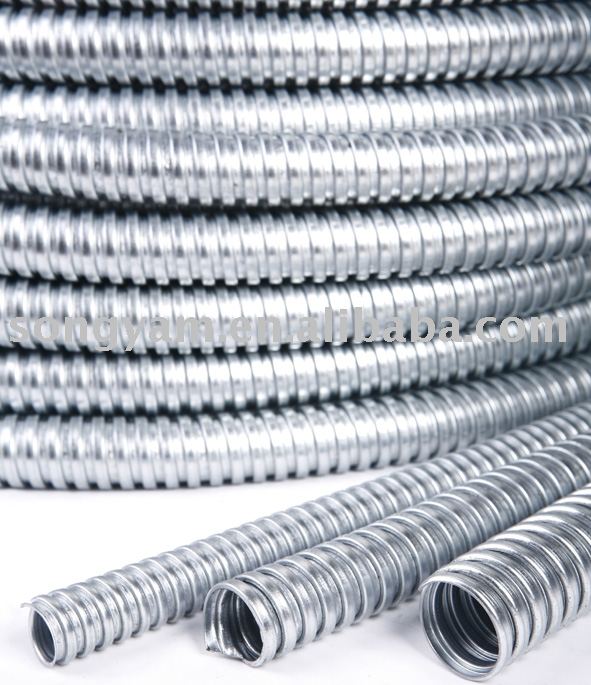A flexible steel conduit has a range of advantages over other piping types, making it ideal for certain situations and applications in a huge range of industries.
Made from corrugated steel, flexible steel conduits are made from the relatively thin steel tubing, which is sculpted with corrugations to allow it to flex and bend. Ordinarily, at this point, the corrugated pipe will be encased in a woven steel mesh, making sure that its flexibility is preserved while preventing expansion, exterior damage and other wear, as well as helping to shield the corrugated steel interior from corrosion or temperature changes.
A flexible steel condu it like this can be used for a range of applications in the steelmaking, petrochemical, chemical smelting, power generation and automotive industries among many others, making them a key component in a huge amount of modern industrialism. Within these industries, these hardy, reliable and long-lasting conduits are used to carry fluids or gasses under varying pressures, to correct misalignments in the pipework of these industries, to allow for flexibility and movement within a system, and to absorb vibration and cancel movement without transmitting it further.
Compared to other materials, like composites, plain steel piping, copper and ceramic piping and plastic hose, flexible steel conduits are able to withstand high temperatures, corrosive substances and atmospheres and movement or impact, making them ideal in harsher industrial environments or when working in environments where movement or impact – accidental or otherwise – may be a possibility.
The wire braiding fitted to the outside of the hose greatly increases the pressure capacity of the hose, and as many flexible steel conduits use this braiding for protection and performance enhancement, this means that steel hose is more suited to high-pressure applications in general than its opponents.
To ensure perfect performance at higher pressures, all the flexible steel conduit hoses available from Proflex Hose are pressure tested underwater, by being filled with compressed air and submerged in water. In this test, not only is the pressure capacity of the hose tested, but any leaks will be immediately detected by streams of air bubbles coming off the hose into the water. A similar test called the Hydrostatic Test may also be used to test on this principal, in which a hose is filled with pressurised water and suspended in air, with any leaks or faults being visible by water dripping from the hose.
Thanks to this rigorous testing process, you can be confident that your flexible steel conduit will be able to stand up to the requirements you have for it – although you should always be sure to tell your supplier exactly what you need the conduits for, the stresses that they are likely to face and the full specifications of the job for which you’ll be using them – otherwise, your supplier can’t guarantee a successful, satisfactory pipe performance.
For more information, get in touch with the experts at Proflex Hose today on 01257220010 or visit their site, linked in this article!

